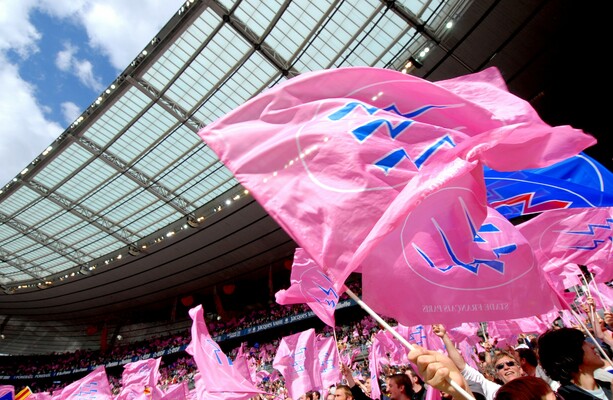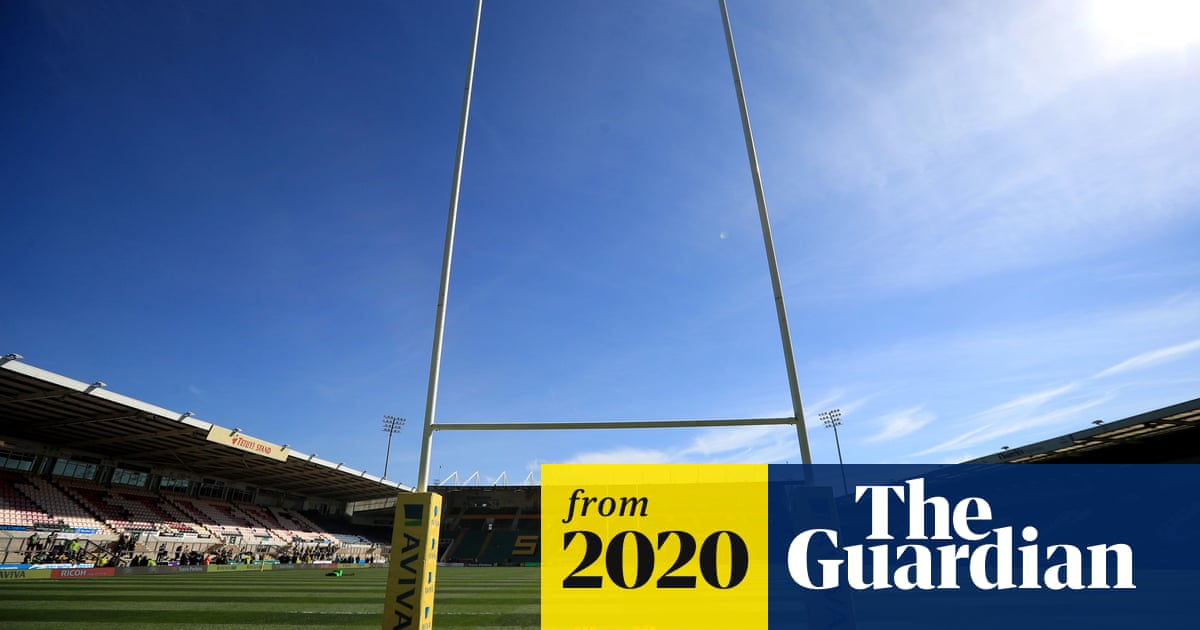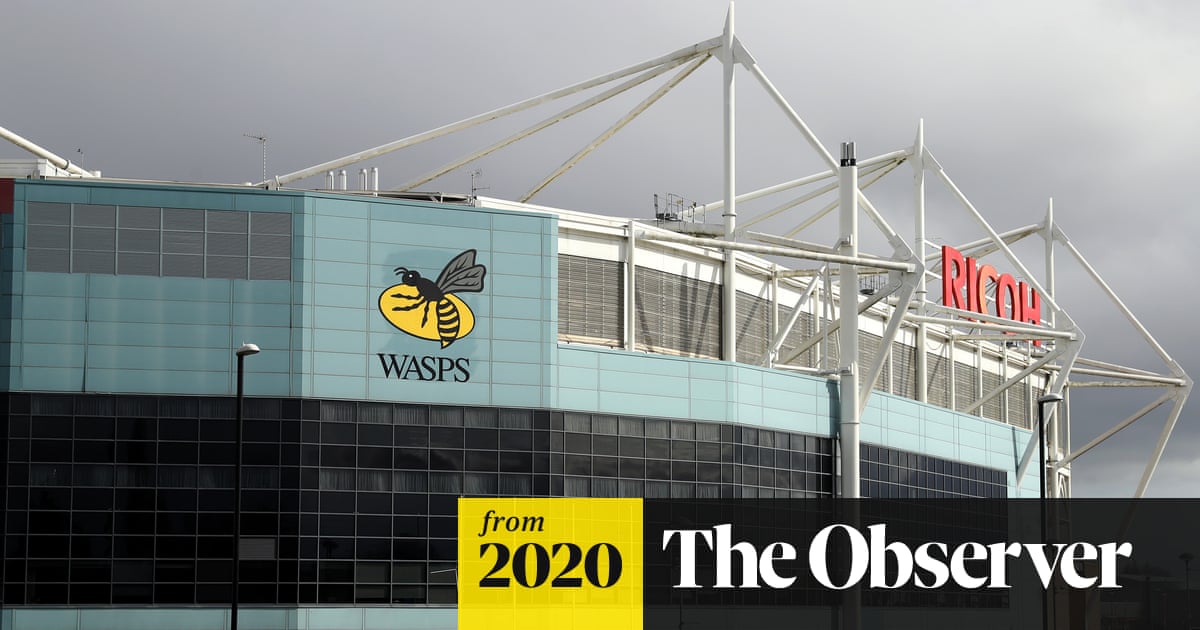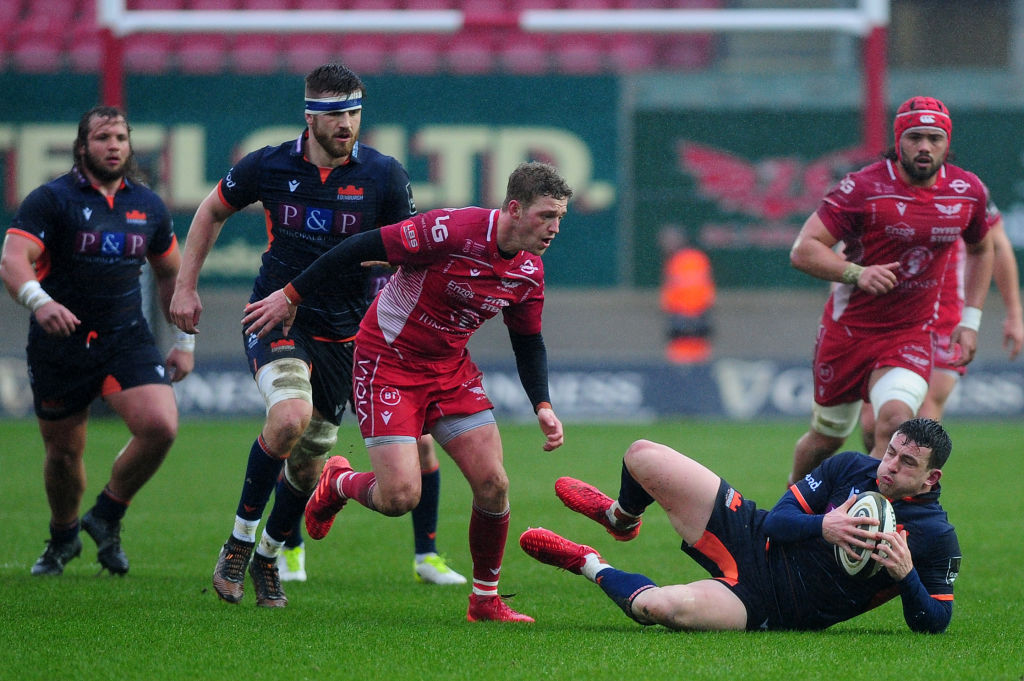Rugby Finances
-
@nzzp said in Rugby Finances:
@Bovidae said in Rugby Finances:
Not enthused about 4 tests against Aust either. I assume that would be 2 at home and 2 away. No need to play the home games at Eden Park though.
If behind closed doors, it'll be whereever is cheapest to open that has camera facilities I expect. Could well be Westpac (or even Dunedin)
I was thinking Wellington. Sky Stadium is free advertising.

-
@Rapido said in Rugby Finances:
Exclusive: All Blacks turn their backs on autumn internationals
The All Blacks are set to abandon their three-match British tour this autumn, a decision which will cost England, Wales and Scotland more than £20m.
Their move towards cancelling Tests scheduled for Cardiff, Twickenham and Murrayfield on successive Saturdays in November is based on advice from the New Zealand government. It follows a warning from Prime Minister Jacinda Ardern that their borders will ‘remain closed to the rest of the world for a long time’.
The Rugby Paper understands that the New Zealand Rugby Board are preparing to sacrifice their UK fixtures rather than risk jeopardising the country’s success in virtually eliminating the Covid-19 pandemic from their shores. It will tear yet another gaping hole in the sport’s dissolving finances.
The news comes hot on the heels of RFU chief executive Bill Sweeney’s claim that the prolonged effect of lockdown threatens to cost the world’s richest Union £107m within the next 12 months. His Welsh counterpart, Martyn Phillips, estimates Wales stand to lose around £50m.
England-New Zealand is being promoted at Twickenham as ‘one of the most anticipated matches in rugby’, all the more so since England smashed the All Blacks’ World Cup monopoly in Yokohama. In addition to £10m plus guaranteed in ticket sales of 82,000, the RFU stand to lose another fortune from other commercial spin-offs.
The Official Twickenham Hospitality website shows that tables of ten for the match have been sold out, at £14,490 per table. Various agencies are advertising single tickets at up to £799.
Instead of touring, New Zealand plan to launch a series of matches involving their Super Rugnby franchises followed by a four-Test series against Australia, all behind closed doors. The respective governments took a major step last week towards making it possible by creating a trans- Ta$man ‘bubble’, allowing free movement without any quarantine requirements.
Can't say I'm looking forward to a 4 match series, behind closed doors.
Gotta do what they gotta do, I suppose.What choice do they have, though?
I'm actually fairly optimistic that this might be a tight and captivating series. Both teams new-look, with new coaches. One team looking quite a bit more vulnerable than it has in a very long time, the other being a massive unknown. Additionally, with the lack of international sport being played this year, it has the potential to be quite gripping.
-
Four tests? Make them play midweek matches too. Pretend it's an old fashioned tour.
-
THE TOP 14′s wealthiest side Stade Francais is cutting its budget by up to 20% due to the “worrying” coronavirus pandemic, the club’s general manager Thomas Lombard said on Wednesday.
The Parisian outfit, who won the last of their 14 league titles in 2015, had an expenditure of €40 million last season.
Lombard said they had lost ticket sales and sponsorship income after the campaign was declared over and has worries about restarting the new season in empty stadiums.
“The situation is worrying. We were unable to play all of our home games. The club, like the rest of the Top 14 has been extremely impacted,” Lombard told AFP.
“The worst thing would be to play behind closed doors. Because it cuts pretty much the whole of our income. We’ll have television rights money but it doesn’t play that big of a role in our budget,” he added.
The side, who were bottom of the table when the term was declared over in April, are backed by billionaire Hans-Peter Wild but Lombard said they need to depend less on the Swiss businessman, who made his fortune from soft drinks.
“From the moment when all the efforts come from the same person it can limit things. He’s already signed a number of cheques,” Lombard said.
Fellow French sides in Toulon and Castres have announced salary cuts for their players.
-
https://www.bbc.com/news/uk-52694459
Bath
ownerJames Dyson is now the UKs richest man.Edit. Doh, he's sponsor, not owner.
4 Premiership owners are in the Sunday Times rich list:
https://www.ruck.co.uk/richest-gallagher-premiership-owners-revealed-how-bath-bristol-bears-and-saracens-rank/3/ -
@Rapido said in Rugby Finances:
https://www.bbc.com/news/uk-52694459
Bath owner James Dyson is now the UKs richest man.
And he can't afford the upkeep of the Premiership's worst pitch.
-
@Wurzel said in Rugby Finances:
@Rapido said in Rugby Finances:
https://www.bbc.com/news/uk-52694459
Bath owner James Dyson is now the UKs richest man.
And he can't afford the upkeep of the Premiership's worst pitch.
That's why he's so rich
-
Premiership players are calling for clearer leadership from rugby’s top administrators amid fears some clubs could go bust by Christmas, prompting widespread job losses. There are also concerns surrounding player welfare despite a provisional agreement that at-risk employees, or anyone with vulnerable family members, can sit out matches if they wish.
With Premiership club owners discussing whether to proceed with plans to restart the league behind closed doors in early July, the Rugby Players’ Association’s chief executive Damian Hopley said many of his members are worried about their own futures and the wider outlook for their sport. “We’ve been on calls to some clubs where there is a very genuine concern the club might not last the year based on the current financial projections,” he said.
“Job security has to be the No 1 concern. We’ve been talking to players up and down the country and some clubs are in a far more stable financial position than others. We don’t want to have a sport where there are only six clubs left at Christmas.”
With some owners desperate to slash costs and others lobbying for the salary cap and marquee player allowance to remain at existing levels, there is concern in dressing-rooms that divisions and contrasting priorities could make it harder to reach a clear consensus. “Within the investor group there is a difference of opinion as to the future direction of travel,” Hopley said. “From the players’ perspective there has to be alignment about what they want to do.
“We’ve had one club owner come out and say he wants to retain the salary cap, we’ve got others who want to reduce it quite significantly. If the financial problems in rugby are the end product of a sausage-waving contest, the players shouldn’t be responsible for that. We’ve got this extraordinary scenario where the top players are earning stratospheric money and themiddle are getting contract renewals at 20-30% below what they’re currently on. We need to have some very robust and transparent discussions with the league about where to go from here.”
Players at the majority of Premiership clubs have been required to take wage cuts until training or matches resume but the arrangements have varied from team to team. While Hopley believes his members “have to be credited massively” for trying to help out in a crisis, it would appear further significant wage reductions will be contested.
“Everyone recognises that the world is a very different place to three months ago but the most important thing a player has is his contract,” Hopley said. “Any suggested changes need to be done properly and a robust process followed. There also needs to be real leadership around formulating a plan for the next five years that everyone can buy into. It is absolutely essential just to restore some of the credibility that rugby has undoubtedly lost in the last six months.”
A collective bargaining agreement would be the RPA’s preferred long-term option but navigating the crisis remains the union’s overriding priority. “These are young men and women with a very limited career span who have to optimise their earnings while they can,” Hopley said. “We have to find a solution and, for the RPA, that’s retaining as many jobs as possible in the Premiership, protecting their contracts as much as possible and, ultimately, keeping rugby clubs in business. How can we navigate our way through what is going to be a tricky 18-24 months? The horror stories coming out of the United States and the travel industry, you can’t ignore those and say sport isn’t going to be affected.”
A stakeholder meeting on Thursday is set to clarify arrangements for training and matches played at bio-secure venues, assuming the government gives the go-ahead and it is deemed to be economically viable and sufficiently safe to complete the season. Hopley added: “What’s really important is that the players have confidence in their training facilities and don’t feel they’re being put into a difficult position.
“The fear we have of someone contracting the virus and, worst-case scenario, passing it on to a vulnerable family member – with all the human issues and potential liability that go with that – is front and centre. It’s not just about the players; there are other vulnerable categories, including the coaches, that need to be addressed. If the season is abandoned so be it but everyone’s preference is to get it up and running and completed, subject to health and safety guidelines.”
-
Still some money pouring in though .....
From a week ago, Ospreys taken over
https://www.bbc.com/sport/rugby-union/52648547
Ospreys have been taken over by a sports marketing group which has bought a 75.1% stake in the region.
Asian-based Y11 Sports & Media company has become Ospreys' major shareholder in a "multi-million pound deal".
pre-existing shareholders will collectively retain a 24.9% stake.
Although, don't know what "multi-million pound deal" is, could be 2, could be 10 ....
-
-
Stuff report on The Times article. Times usually an accurate source on the financial side of rugby.
-
CVC complete £116m acquisition of PRO14 shares
The PRO14 and CVC have finalised their deal which will see the former owners of Formula 1 acquire a 28 percent share in Celtic Rugby.
The investment by CVC had appeared set to be completed earlier this year prior to the global health pandemic.
But after awaiting the financial fallout of rugby’s lockdown, CVC have ratified their deal unchanged from its original value of £116m.
The newest addition to CVC’s rugby portfolio, which opened with the 27 per cent holding with Premiership Rugby in 2018, comes as part of a £420m plan to expand into PRO14 and the Six Nations.
And while the Six Nations investment waits to be ratified with the 2020 tournament unfinished and plans develop to revolutionise the competition’s window as part of a ‘global calendar’, CVC have been welcomed by the PRO14.
I reckon that is an outstanding outcome for Pro14 to still get the same value for their 28% share sold, in the post-coronavirus environment. (I have no opinion on whether the original value was good or bad)
-
From The Times courtesy of someone on reddit
https://www.reddit.com/r/rugbyunion/comments/gtymq1/the_four_professional_rugby_teams_in_wales_are/
The four professional rugby teams in Wales are facing a fight for survival with their funding from the Welsh Rugby Union set to drop from £26 million to less than £3 million over the next year.
Cardiff Blues, Dragons, Ospreys and Scarlets are each looking at massive losses in the next 12 months because of the coronavirus crisis, which appears certain to lead to redundancies and extended wage cuts for the top players.
The Welsh Rugby Players Association agreed to a 25 per cent wage cut for three months from April 1, but that is likely to be extended significantly. The implications for the top earners in Wayne Pivac’s Wales squad of 38 will be huge, with the leading players potentially losing £100,000 a year.
The Professional Rugby Board, which represents the four regions and the interests of the Welsh national team, held a four-hour meeting last week to consider proposals on how to navigate a way through the financial minefield. The WRU is facing a potential £60 million downturn in its annual income, which was £90.5 million in 2019, with drastic implications in the payments to the regions.
Under the latest projections the money they receive for the 2021 financial year would drop from £26 million to less than £3 million, The Sunday Times understands. Where the Scarlets received about £8.5 million, the Ospreys and Blues £6.5 million and the Dragons £5.5 million, they are now looking at a mere £500,000 each for the next year.
The 320 clubs that make-up the community game have £11.8 million ring-fenced under the new agreement with the WRU, but the harsh reality for the professional game is massive savings will have to be made if the four regional sides are to be saved.
While the wage cut and the furlough scheme have saved the four regions millions of pounds to date, there are still choppy waters ahead. The Guinness Pro14 is hoping to get back into action in August with two rounds of localised fixtures, but without any crowds.
That could at least reduce the projected clawback from TV companies, but all four regions are faced with having to potentially return sponsorship, hospitality and ticket revenue for matches that haven’t been played in the 2019-20 campaign.
On top of that, the Scarlets, Dragons and Blues — the Ospreys don’t own a ground — have had no income from their venue operations through non-rugby events for the past two months and are unlikely to have anything for the remainder of the year and beyond.
There is still a sell-out Six Nations match to play against Scotland, while 40,000 tickets had been sold for “Judgement Day”, the double-header between the four regions. That money, about £4 million, will have to be repaid to fans if the games don’t take place.
Pleas for financial aid from World Rugby, the UK and Welsh governments could provide some much needed support, but until crowds are permitted to return to watch matches there will be little or no meaningful income available.
A cash injection into the Pro14 from the private equity company CVC was announced last week and could provide some relief, but it is a phased payment and won’t provide a silver-bullet solution to the problems.
Bit of an annoying article, tbh. Use of the word "projected" but not explaining what the projection is based on.




